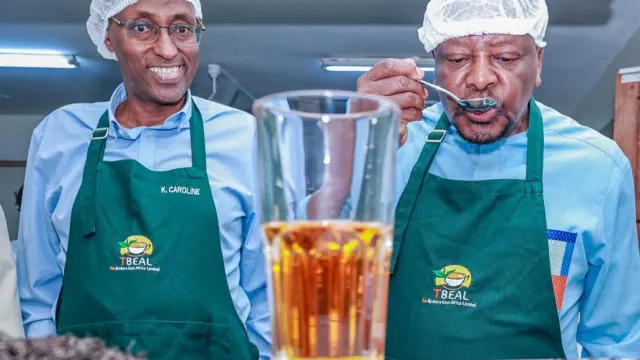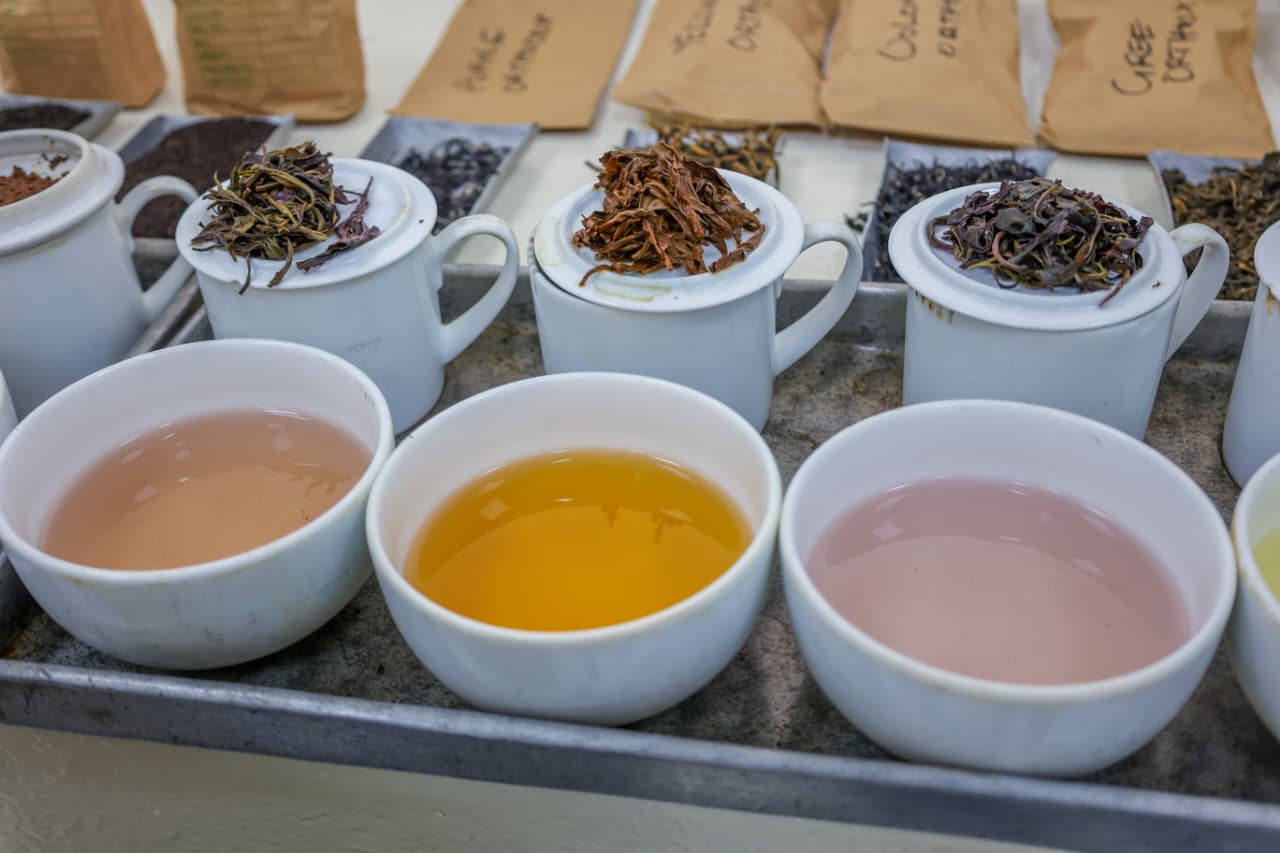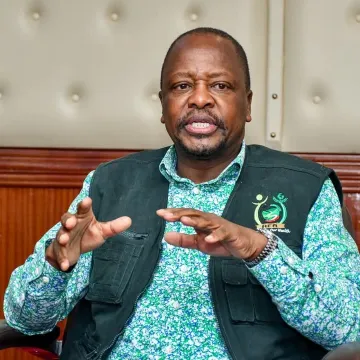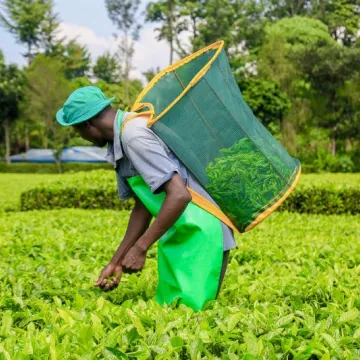Kagwe: Orthodox tea auction targets premium global market

Agriculture Cabinet Secretary Mutahi Kagwe (right) during specialty tea auction in Mombasa on Wednesday.
Kenya has launched its first specialty orthodox tea auction as part of a broad strategy to further diversify the country's exports and open fresh income streams for farmers in the international markets.
Speaking at the auction in Mombasa on Wednesday, Agriculture Cabinet Secretary Mutahi Kagwe stated that specialty tea auction window was critical in lifting Kenya’s appeal in the global specialty markets, not only as a producer but also as an exporter.
"We have decided to diversify markets by increasing capacity to produce orthodox teas in order to capture the ever-changing global market," said CS Kagwe during the inaugural orthodox tea auction where 2,925 packages, equivalent to 91,798 kilos, were auctioned.
He added: “Kenya has an excellent profile for being a lead producer of CTC teas. But it is high time we diversified our markets by increasing our capacity to produce orthodox teas in order to capture the ever-changing global market and raising demand for specialty teas which will enable our farmers to tap into the premium market. This diversification will mean more money in their pockets, greater resilience and new revenue streams as consumers."
Specialty tea faming
As part of the strategy to diversify into specialty tea faming, processing and export value chain, Kenya has licensed 22 orthodox manufacturers with a goal to increase the number to 42 in the next two years.
CS Kagwe noted: "We aim to grow installed orthodox capacity from 15 million kilos in 2024 to 200 million kilos by 2030."
According to the Kenya Tea Development Authority, the prices of orthodox teas ranged between $3.40 and $4.16 per kilo last year compared to the current average of just $2.28 per Kg for bulk ordinary teas at the Mombasa auction.
In 2024, Kenya produced 7.51 million kilos of orthodox tea, out of which five million kilos were exported. This was lower than the 12.34 million kilos produced in 2023, largely due to challenges with the Iran market.
To enhance the specialty tea segment, Kagwe noted that the ministry has set up a quality assurance laboratory in Mombasa, opening avenues for players in the segment to receive real-time quality advisory, product testing, and food-safety certification.
According to the CS, plans are underway for the Mombasa Tea Auction to go virtual, helping increase transparency, increase earnings for farmers, while ensuring that the country remains competitive internationally.
"This digital transformation will allow buyers from across the world to participate in real time, enhance price discovery, reduce cartels, and firmly position Kenya as a modern, efficient tea-trading hub," CS Kagwe said.





